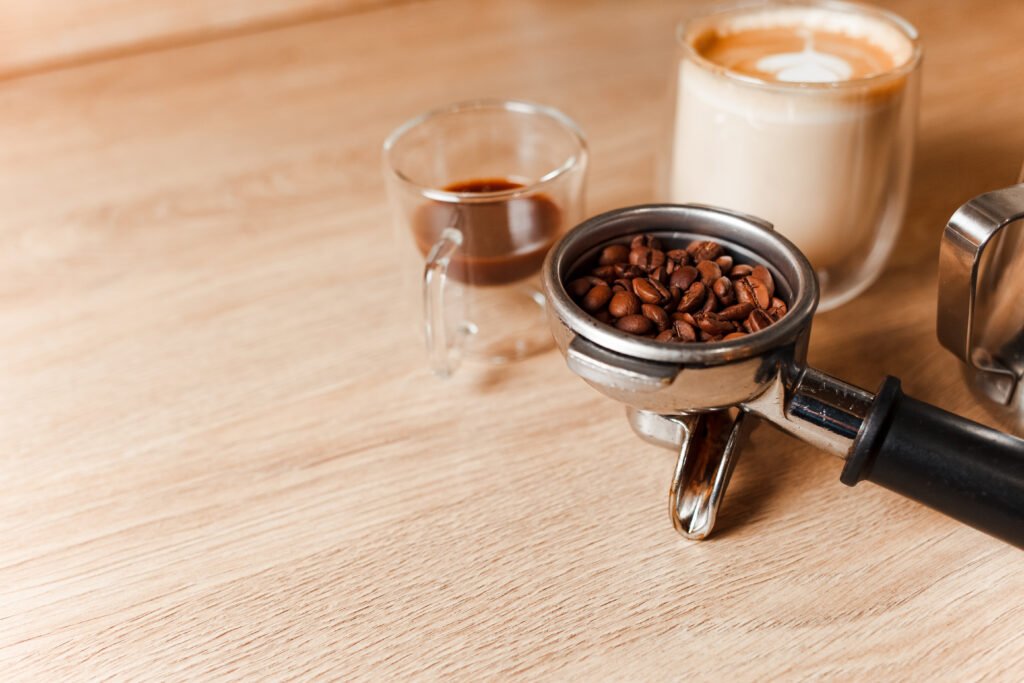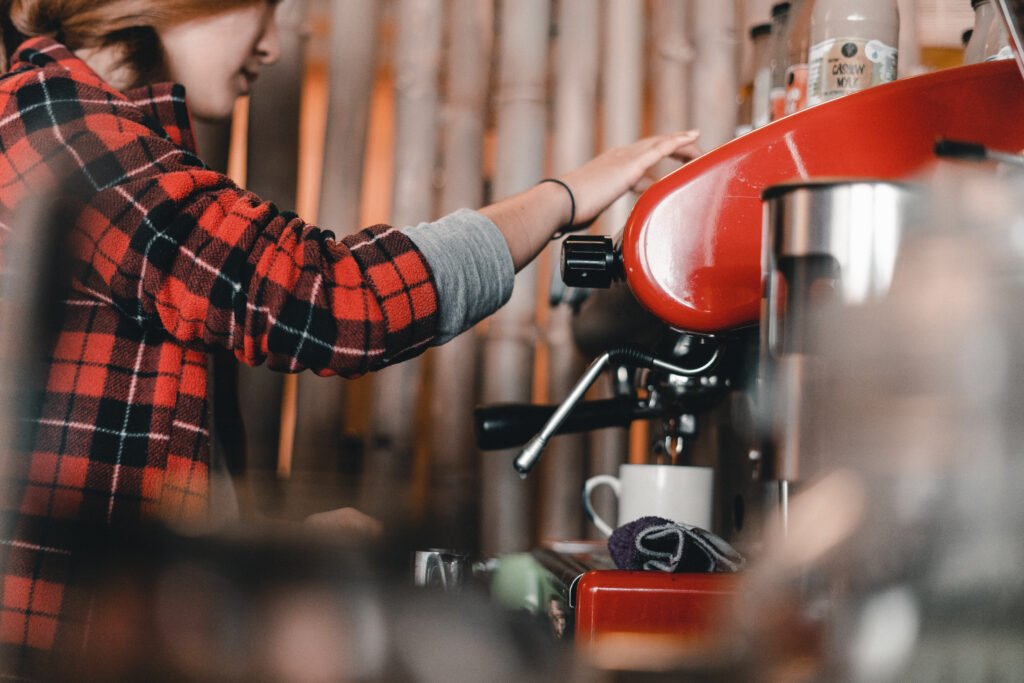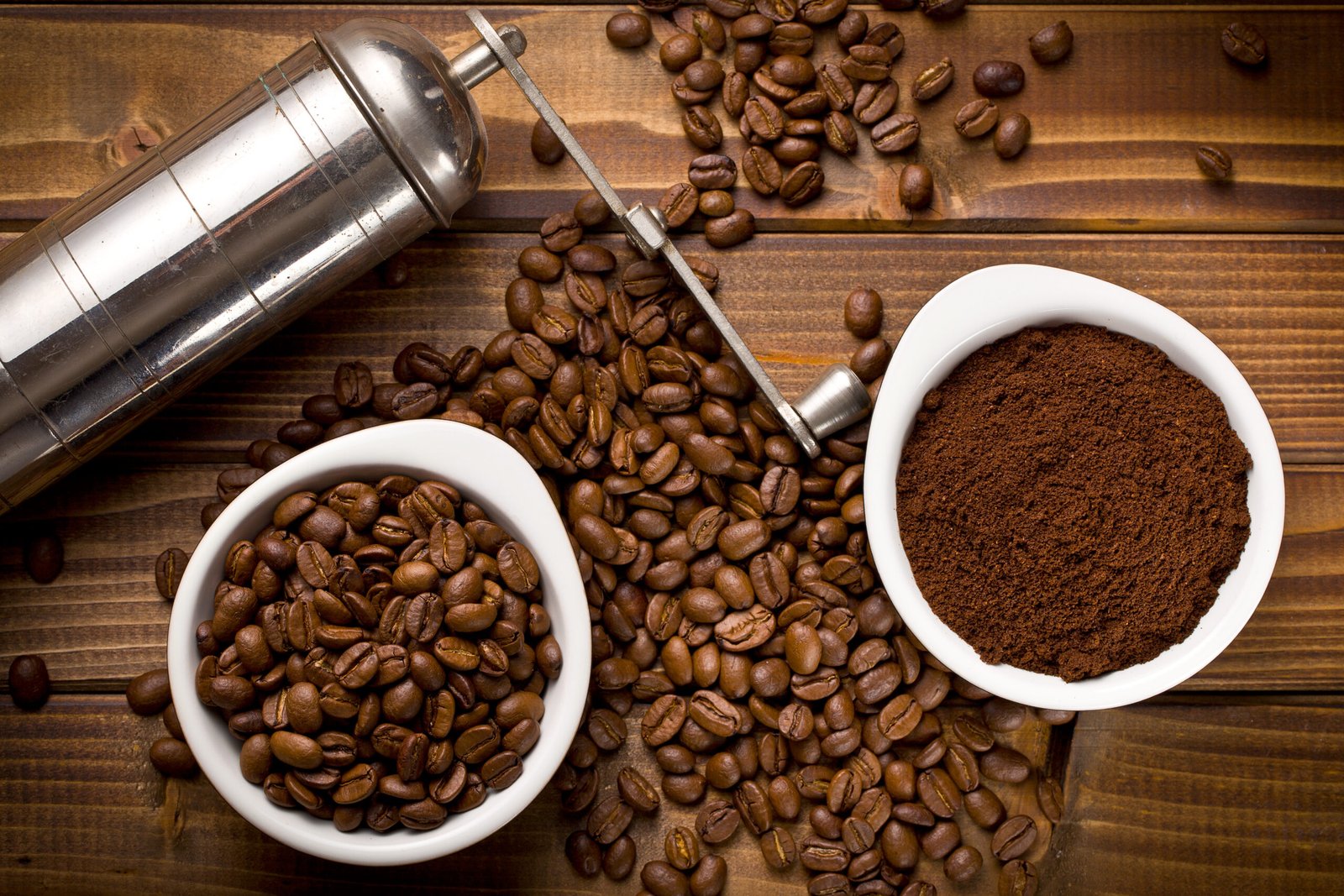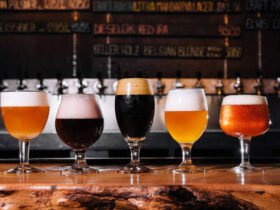Coffee, an international beverage favorite enjoyed around the globe, boasts a captivating and irresistibly aromatic experience that ranges from creamy to bitter in its taste profile. Some may relish coffee’s bitter edge as part of its overall appeal while for others it may cause discomfort or displeasure. In this essay we’ll investigate its fascinating world of bitterness; its components that contribute to taste as well as scientific foundation behind its existence – not forgetting ways you can mitigate or even appreciate its presence! Come along on this fascinating voyage of discovering coffee’s bitter truth together on our voyage of discovery together!
Table of contents
- 1. What causes coffee’s bitter taste?
- 2. Coffee bitterness and polyphenols: How they contribute.
- 3.what makes coffee bitter?
- How Does Water Affect Coffee’s Bitter Taste
- 4. Understanding Roasting’s Impact on Coffee’s Bitterness
- 5. Investigating Alternative Brewing Techniques and Hop Bitterness Levels
- Distinguish the Bitterness in Pour-Over Coffees 5.2
- 6. Effect of Coffee Bean Type on Bitterness
- 7. consider how perception and taste influence perception of bitterness.
- 8. Ways to Reduce Coffee Acidity
- Question (FAQs)
- Why does coffee taste bitter?
- Are there any methods available that will reduce the bitterness of coffee?
- Are bitterness and sourness more frequently associated with using certain processes for coffee production?
- Does coffee’s level of bitterness impact its taste?
1. What causes coffee’s bitter taste?
Coffee. A beloved morning ritual and daily energy booster. Yet why does its flavor often leave us tasting bitterness in our mouths? Join our group discussion about bitterness in coffee to gain more insights.
Coffee’s bitter flavor stems from its chemical makeup as well as the brewing and roasting processes, so savor a cup and explore its constituent parts!
2. Coffee bitterness and polyphenols: How they contribute.
Put on your lab coat (kidding that it would make a good idea!), because we will explore the scientific basis behind coffee’s bitter flavor. Caffeine, one of many chemical compounds present within coffee beans, does not directly contribute significantly to bitterness but plays an indirect part by increasing our perception of bitterness.
Polyphenols are responsible for coffee’s distinctive bitter taste. These organic compounds can be found at high concentrations within its beans, contributing to its characteristic bitter flavor. As more polyphenols accumulate within our brew, so too will its intensity of taste increase accordingly.
3.what makes coffee bitter?
How Does Water Affect Coffee’s Bitter Taste
An indicator of bitterness for coffee depends on several variables. It’s crucial to identify where its beans came from as these may vary in their degree of bitterness based on where they grew; as the source may also contribute to why certain coffee drinks taste overly sweet or acidic.
Beans alone won’t do. How you prepare and enjoy coffee also affect its level of bitterness; higher temperature brewing tends to create more bitterness while lower temperatures produce an easier cup – the trick lies in finding just the right flavor without overshadowing any bitterness!
Water, the unsung hero of coffee-making should never be taken for granted. Your beverage’s bitterness depends on many variables including what kind of water you drink – this includes its taste changing depending on which minerals and contaminants it comes into contact with, including any potential sources. If you want to reduce bitterness of future batches of coffee then check your water before beginning again!
4. Understanding Roasting’s Impact on Coffee’s Bitterness
Coffee bitterness as well as Maillard reaction is both caused by inedible bean residues as well as Maillard reaction products.
Effect of Roast Degree on Astringency
Roasting depth plays an integral part in creating the bitterness level desired, with darker roasts having stronger and more bitter notes, while lighter roasts feature higher acidity but lower bitterness levels. Your preferred roast level will determine which bitterness level suits you; whether mild and lively or strong and rich coffee beverages.
An examination into the more sinister side of coffee follows with this post. The complexity behind its bitter taste can be staggering; from chemical processes that generate it to how different elements affect its taste. Each time you take an icy sip from your favourite blend, be aware of this intricate dance between molecules and expert craftmanship – don’t forget to inject humor and spirit to add enjoyment! Cheers!

5. Investigating Alternative Brewing Techniques and Hop Bitterness Levels
Exploring Brewing Method Impact on Espresso Bitterness
Espresso’s intense flavour and distinct bitterness has long made it a preferred beverage among coffee consumers. The bitterness can be traced to its high extraction level and concentrated shape – when coffee solids containing bitter chemicals such as caffeine are removed during its high pressure brewing, creating stronger and more bitter beverages than what would otherwise exist in standard ground beans or less heavily roasted coffee beans. The bitter flavor profile, however, varies largely according to bean type used and amount roasted prior to drinking it.
Distinguish the Bitterness in Pour-Over Coffees 5.2
Pour-over coffee requires slow, meticulous brewing to bring out different flavors. Pour-over is typically smoother and less bitter than espresso as its extraction process mixes water directly with coffee grounds to produce moderate flavors that are then extracted resulting in moderate bitterness levels that can be altered via change to grind size or temperature of water used during extraction process.
Coffee prepared using a French press is famously delicious and aromatic, though many don’t immediately associate its use with bitterness. Yet French press brewing could play a contributing factor; keeping ground coffee immersed for extended periods in water helps remove bitter chemicals; opting for coarse grind sizes may reduce hardness while steeping for prolonged periods can remove bitter chemicals altogether.
6. Effect of Coffee Bean Type on Bitterness
Arabica Vs Robusta: Comparison of Bitterness
Taste can vary significantly based on its source, with Arabica and Robusta varieties standing out due to their various levels of bitterness. Arabica beans boast greater sweetness with sweeter tastes and reduced bitterness when compared with Robusta beans; on the other hand, Robusta varieties tend to offer stronger bitter tones with greater caffeine contents; Arabica is therefore recommended if one wants to stay clear from bitterness altogether.
Coffee in different parts of the world differ in bitterness intensity. Here we outline five variables which contribute to variations in coffee bitterness levels globally.
Coffee’s bitterness depends on a number of variables, from bean type and region of cultivation, altitude or soil type and climate all having an influence in creating its distinct flavor profile. Coffees from Ethiopia and Colombia tend to have less bitter and fruitier notes while those produced on Sumatra or Brazil might feature earthier undertones with increased bitterness levels – an easy way to test different coffees’ levels is simply tasting different options available from various locations! To accurately gauge level of bitterness taste various coffees from around the globe! To determine levels of bitterness simply sample multiple types from across locations! To determine your level of bitterness just sample various coffees produced across locations!
7. consider how perception and taste influence perception of bitterness.
Genetic Contributions to Perceived Bitterness
Your preferences for bitter food could be determined by genetic makeup. Some individuals have greater or lesser tolerance to bitter flavors due to genetic variations; it would be easy to blame your genetics (but don’t let that influence yourself!) if coffee becomes very bitter for you while another friend drinks it without hesitation.
Training tolerance of sweet and sour flavors is possible.
There will come times when it’s necessary for us to adjust to bitter coffee. Over time and through repetition of unpleasant tastes, your senses become less sensitive, leading your palate to accept and even appreciate its bitter flavor with practice and time. Even if it initially seems unpleasant or foreign to your palate, don’t give up too soon and experiment with various brands and recipes; chances are good you may discover you enjoy drinking coffee more than expected!
8. Ways to Reduce Coffee Acidity
Change the conditions of brewing to reduce bitterness in your cup. Play around with combinations of temperature, time and ratio until you find what suits your individual coffee best – for instance by increasing chill water use during brew process or shortening its duration. Extraction of bitter chemicals could also be reduced through such methods – more chilled water may have less of an impact than shorter processes!

Experiment with different sizes of grinds for an increasingly bitter beverage
Extraction processes are profoundly influenced by how much grinding occurs, with results directly impacting bitterness levels. If your coffee tastes unbalanced or is unflavorful, experiment with various grind sizes until finding what works for you!
Exchanging bitter taste for more pleasurable ones by including more appealing flavours in food products
One effective strategy to counter bitterness is pairing it with complementary flavors. If your coffee tends towards bitterness, adding small amounts of sugar or milk might help balance its flavors; alternatively, try out coffees with unique aromas such as those featuring nutty or chocolate notes that might provide another delicious counterpoint for bitterness.
Consider that different factors, like brewing techniques, bean type and individual taste can all influence the degree of bitterness found in coffee. With some research and experimentation you could discover your perfect cup based on preferences, taste preferences and bitterness threshold.
One key way of fully appreciating coffee’s unique flavors is developing an appreciation of bitterness. We hope you have gained more knowledge about its science behind brewing, chemistry and bean varieties which all affect its bitterness – this makes finding one that suits your palate easier through experimentation with various brewing methods; whether or not you enjoy its bitterness is up to you; simply sit back and soak up its array of sweet and bitter notes!
Question (FAQs)
Why does coffee taste bitter?
Coffee beans contain polyphenols – chemical compounds such as chlorogenic acids that contribute to its bitter taste – that form when sugars found within coffee beans caramelise during roasting, creating bitter compounds.
Are there any methods available that will reduce the bitterness of coffee?
Coffee’s bitterness may be reduced through various strategies. Tasting less bitter coffee cups can be achieved through experimentation with various brewing elements like temperature, size of grinds and duration of brew period; and/or by selecting coffee beans with lower acidity levels or lighter roast options.
Are bitterness and sourness more frequently associated with using certain processes for coffee production?
Certain bitter chemical compounds found within coffee grinders are extracted through certain methods of brewing. Pour-over procedures typically create smoother and less intense flavor profiles while espresso-brewed coffee tends to deliver stronger tastes which could produce bitter sensations.
Does coffee’s level of bitterness impact its taste?
People often have different perceptions of bitterness; genetics as well as our experiences determining taste play an integral part. While certain individuals enjoy and desire the bitter flavor of coffee, others find its intense bitterness overpowering; with different coffee brewing methods and flavors being available to accommodate varied preferences.









